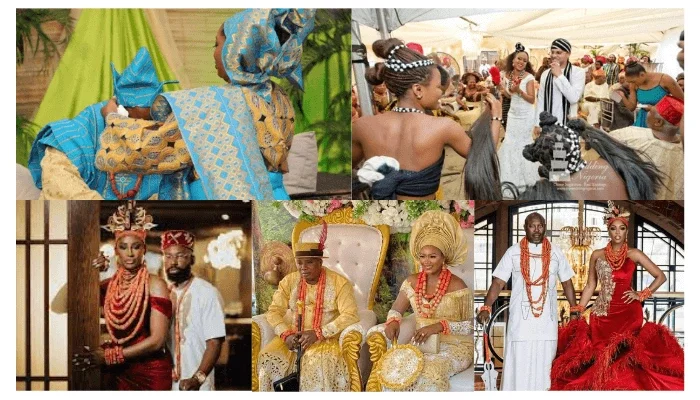
In our previous article, we discussed the Nigerian tribes with the longest and most expensive marriage lists. With over 250 ethnic groups speaking over 500 distinct languages, they all identify with a wide variety of cultures. The three largest ethnic groups are Hausa, Yoruba, and Igbo, which together constitute over 60 percent of the total population of the country.
Nigerian marriage is intertwined with religious, spiritual, and traditional beliefs. Bride price is among the traditional and religious beliefs in Nigeria.
A bride's price is money or something of value (property) from a groom, or the groom's family, to the bride's family. This is a price that is usually among the lists given to the groom before marriage.
Here are 5 Nigerian tribes with the cheapest marriage list:
Yoruba tribe (Western Nigeria)
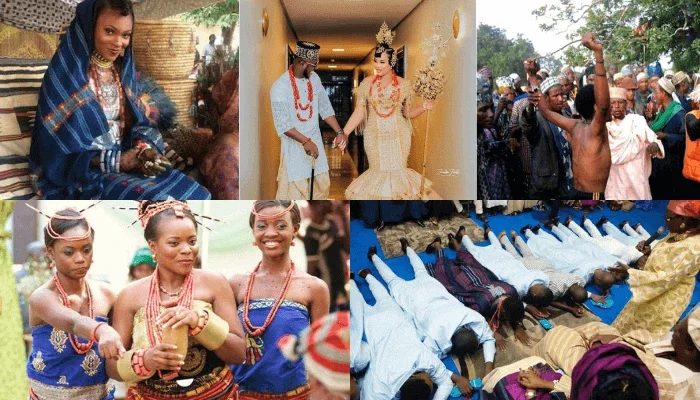
In Nigeria, the Yoruba tribe is regarded as one of the most courteous and well-educated in the nation. Their daughters are highly valued, which is why they don't demand a high bride price. Once you wed their daughter, they will see you as their son. They also inform you that they do not sell their daughter, but rather that the bride fee, known as "Owo Ori" in Yoruba, is paid as per custom. You must pay the bride price, but not in an amount that will cause you inconvenience. Upon receiving the bride's price, they may decide to return it to you; this is entirely up to the parents.
In Yoruba culture, marriage is viewed as a cooperative endeavour; hence, it is not unusual for the woman's parents to contribute financially to the marriage's success. A Yoruba bride's price can range from ₦5,000 to ₦20,000. However, the parents typically give it back to the groom as a sign of support for the union after they have collected it. The bride's price is only initially gathered to serve as a symbolic event and to show that they truly collected it in good faith.
Following this, a list of items that you should purchase will be given to you. These items are edible and include things like sugarcane, yam, and plantains, amongst other things. They are also reasonably priced, so even a man without a job can purchase them.
Esan tribe (Edo State)
Unlike certain cultures, the bride price is quite modest among the Esan people because they appreciate all of their children, male or female. Although it was less common back then, the bride's father now benefits greatly from the system of paying the bride price. But only the wealthy could allow their girls to mature before arranging for them to be married.
The bride reward, also known as the dowry, is recognised by the nation's Marriage Act and is essential to the consummation of the marriage under Esan local laws and customs, much like in other customary-law marriages in Nigeria.
The bride price that is typically sought is quite small, giving the impression that Esan people do not sell their daughters into marriage; 24 Naira which is equivalent to 24 cowries or British pounds in the past. However, you may need to purchase other items, which may incur additional costs.
Bini tribe (Edo State)
The Bini people, who make up the bulk of the tribe in Edo state, are known for having beautiful ladies and speaking the Bini language. Although there may be additional fees, the Bini bride price is among the lowest in Nigeria.
The bride fee, or dowry, is N25, and the husband is then given a list of things he has to provide.
There are a few customs that must be followed before the festivities start. Usually, a few chosen family members from both sides convene for these talks in the bride's father's living room, or another location (Ogua).
Guests for the wedding wait outside the Ogua during these negotiations. Typically, the celebration would have already been put up in the bride's father's compound.
Itsekiri tribe (Delta State)
The term "Tetmotsi" refers to the local term for the Itsekiri traditional marriage, which is centred largely on family unity rather than the customary presents, bride price, and other perks.
The bride's family may allow the groom to pay as little as N12. The Itsekiri people do not view marriage as a means of selling their daughters to another family; rather, they view it as a bond between two families.
The elders begin to bless the newlyweds' union after the bride price has been paid. After the ceremony, the bride is brought to her new home while traditional dancers and Itsekiri music amuse the guests.
Tiv tribe (Benue state)
In Tiv culture, a man must bring a large pig, a wheelbarrow, and a knife, among other items, to be granted a wife. These are among the things that must be present for the marriage ceremonies. Each household has a different list of items to bring. Essentially, though, the list is split into two sections. The "should-be-done-now" and "could-be-done-later" items.
Among the obligatory items that must be done right away are meat, fish, salt, palm oil, a knife, drinks, an opener, a chair, a wheelbarrow, jewellery for the mother-in-law, a pig, and a young female goat.
The exact beginning of this practice is unknown, but throughout the Tiv people's history, it has been followed for many years. The payment of bride price in the Tiv tribe is known as 'Kem Kwase.'
All of the above-mentioned things are essential, but even if the bride price is significant, it is usually put on the could-do-later list. "This is because, in Tiv culture, Kem Kwase never finishes."
Tiv people think that traditional marriage ceremonies take more than a single day to complete. This is because the two families that are getting married have united, and there should be space for friendly cohabitation for the duration of the marriage.

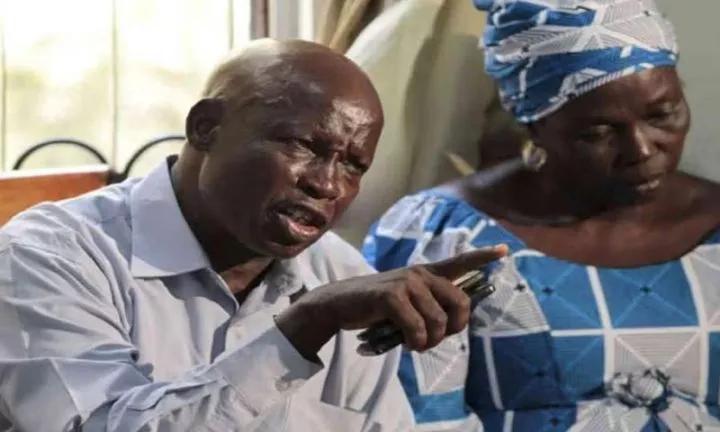


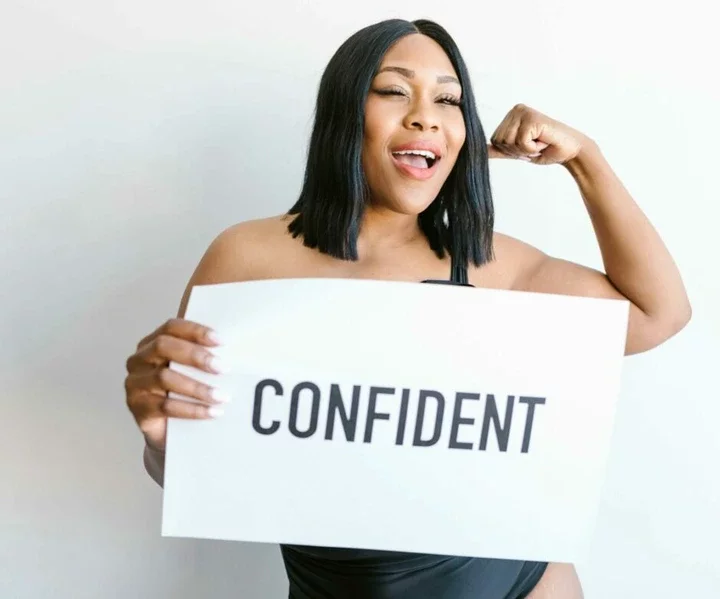



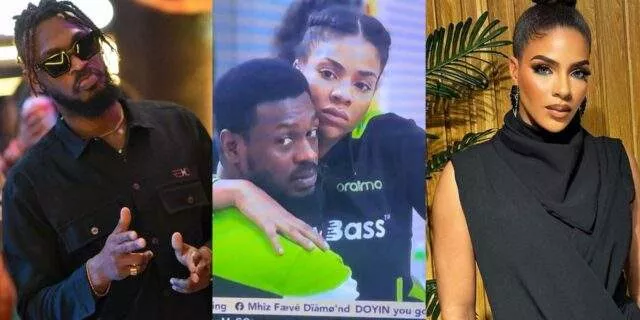







Comments